 W
WFranciszka Arnsztajnowa was a Polish poet, playwright, and translator of Jewish descent. Much of her creative oeuvre falls within the Young Poland period, stylistically encompassing the twilight of neo-romanticism. She is called "the legend of Lublin".
 W
WMiron Białoszewski, was a Polish poet, novelist, playwright and actor.
 W
WTadeusz Kamil Marcjan Żeleński was a Polish stage writer, poet, critic and, above all, the translator of over 100 French literary classics into Polish. He was a pediatrician and gynecologist by profession.
 W
WStanisław Leopold Brzozowski was a Polish philosopher, writer, publicist, literary and theatre critic. Considered to be an important Polish philosopher, Brzozowski is known for his concept of the philosophy of labour, rooted in Marxism. Besides Karl Marx, among his major inspirations were Georges Sorel, Friedrich Nietzsche, Henri Bergson, Thomas Carlyle, and John Henry Newman. Brzozowski's core idea was based on the concept of a socially engaged intellectual (artist). Although he was in favour of historical materialism, he strongly argued against its deterministic interpretation. In his philosophical approaches, Brzozowski rejected all concepts that were commodifying a human being.
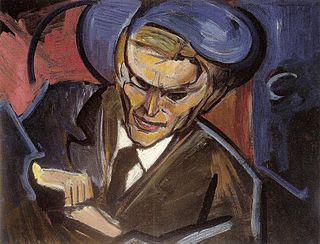 W
WTytus Czyżewski was a Polish painter, art theoretician, Futurist poet, playwright, member of the Polish Formists, and Colorist.
 W
WMaria Dąbrowska was a Polish writer, novelist, essayist, journalist and playwright, author of the popular Polish historical novel Noce i dnie written between 1932 and 1934 in four separate volumes. The novel was made into a film by the same title in 1975 by Jerzy Antczak. Dąbrowska was awarded the prestigious Golden Laurel of the Polish Academy of Literature in 1935. She was nominated for the Nobel Prize in Literature five times. She translated Samuel Pepys' Diary into Polish.
 W
WJanusz Andrzej Głowacki, better known as Janusz Głowacki or colloquially simply as Głowa, was a Polish playwright, essayist and screenwriter. Głowacki was the recipient of multiple awards and honours, including Guggenheim Fellowship, two Nike Award nominations and BAFTA Award nomination. He was awarded the Gloria Artis Gold Medal in 2005 for his contribution to Polish culture, and in 2014, the Commander's Cross of the Order of Polonia Restituta.
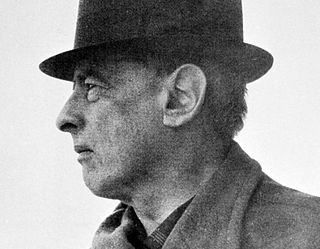 W
WWitold Marian Gombrowicz was a Polish writer and playwright. His works are characterised by deep psychological analysis, a certain sense of paradox and absurd, anti-nationalist flavor. Because he was a leftist, bisexual, and anticlerical who defied all party lines, his books were banned in communist Poland. In 1937 he published his first novel, Ferdydurke, which presented many of his usual themes: problems of immaturity and youth, creation of identity in interactions with others, and an ironic, critical examination of class roles in Polish society and culture. He gained fame only during the last years of his life, but is now considered one of the foremost figures of Polish literature. His diaries were published in 1969 and are, according to the Paris Review, "widely considered his masterpiece". He was a Nobel Prize candidate in Literature in 1966, according to a recently published database.
 W
WYaroslav Olexandrovych Halan was a Ukrainian Soviet anti-fascist writer, playwright, publicist, member of the Communist Party of Western Ukraine since 1924, killed by nationalist insurgents in 1949.
 W
WKazimiera Iłłakowiczówna was a Polish poet, prose writer, playwright and translator. She was one of the most acclaimed and celebrated poets during Poland's interwar period.
 W
WKarol Irzykowski was a Polish writer, literary critic, film theoretician, and chess player. Between 1933–1939 in the Second Polish Republic he was a member of the prestigious Polish Academy of Literature founded by the decree of the Council of Ministers.
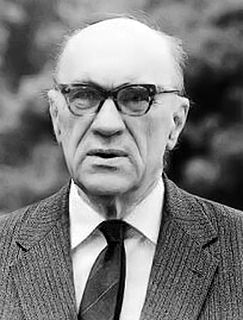 W
WJarosław Leon Iwaszkiewicz, also known under his literary pseudonym Eleuter, was a Polish writer, poet, essayist, dramatist and translator. He is recognized for his literary achievements, beginning with poetry and prose written after World War I. After 1989, he was often presented as a political opportunist during his mature years lived in communist Poland, where he held high offices. He was nominated for the Nobel Prize in Literature four times. In 1988, he was recognized as a Righteous Among the Nations for his role in sheltering Jews during World War II.
 W
WJerzy Janicki was a Polish writer, journalist and scriptwriter. Author of many radio auditions, among them most famous is the radio drama Matysiakowie. He wrote many books about Kresy, particularly about the city of Lwów.
 W
WPope Saint John Paul II was the head of the Catholic Church and sovereign of the Vatican City State from 1978 until his death in 2005. He was elected pope by the second papal conclave of 1978, which was called after Pope John Paul I, who had been elected in August to succeed Pope Paul VI, died after 33 days. Cardinal Wojtyła was elected on the third day of the conclave and adopted the name of his predecessor in tribute to him. John Paul II is recognised as helping to end Communist rule in his native Poland and the rest of Europe.
 W
WJerzy Jurandot, born Jerzy Glejgewicht, was a popular Polish-Jewish poet, dramatist, satirist and songwriter.
 W
WTymoteusz Karpowicz was a leading Polish language poet and playwright.
 W
WJan Kasprowicz was a poet, playwright, critic and translator; a foremost representative of Young Poland.
 W
WUrszula Kozioł is a Polish poet. In 2011, she was a recipient of the Silesius Poetry Award.
 W
WLeon Kruczkowski was a Polish writer, publicist and public figure. He wrote books and dramas and was prominent in Polish theatre of the post-World War II period. His best known work is the drama Niemcy, written in 1949.
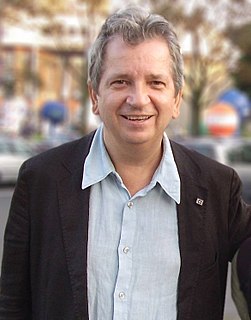 W
WJuliusz Machulski is a Polish film director and screenplay writer. Son of noted actor Jan Machulski, Juliusz became notable for his comedies ridiculing the life in communist-ruled Poland of the 1970s and 1980s.
 W
WCasimir Dunin Markievicz, known as Count Markievicz, was a Polish playwright, theatre director, and painter, and the husband of the Irish revolutionary Constance Markievicz.
 W
WSławomir Mrożek was a Polish dramatist, writer and cartoonist. In 1963 he emigrated to Italy and France, then further to Mexico. In 1996 he returned to Poland and settled in Kraków. In 2008 he moved back to France. He died in Nice at the age of 83.
 W
WAlfred Nossig was a Polish sculptor, musician, writer, and public activist. During World War II he was imprisoned in the Warsaw Ghetto where he became a member of the Judenrat. He was accused of collaboration and executed by a resistance organization.
 W
WMaria Pawlikowska-Jasnorzewska, née Kossak, was a prolific Polish poet known as the Polish Sappho and "queen of lyrical poetry" during Poland's interwar period. She was also a dramatist.
 W
WZofia Posmysz-Piasecka is a Polish journalist, novelist, and author. She was a resistance fighter in World War II and survived imprisonment at the Auschwitz and Ravensbrück concentration camps. Her autobiographical account of the Holocaust in occupied Poland Passenger from Cabin 45 became the basis for her 1962 novel Passenger, subsequently translated into 15 languages. The original radio drama was adapted for an award-winning feature film, while the novel was adapted into an opera by the same title with music by Mieczysław Weinberg.
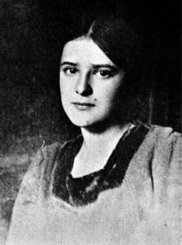 W
WStanisława Przybyszewska was a Polish dramatist who is mostly known for her plays about the French Revolution. Her 1929 play The Danton Case, which examines the conflict between Maximilien Robespierre and Georges Danton, is considered to be one of the most exemplary works about the Revolution, and was adapted by Polish filmmaker Andrzej Wajda for his 1983 film Danton.
 W
WStanisław Przybyszewski was a Polish novelist, dramatist, and poet of the decadent naturalistic school. His drama is associated with the Symbolist movement. He wrote both in German and in Polish.
 W
WKarol Hubert Rostworowski was a Polish playwright, poet and musician, born to a family of local gentry. He is remembered for his opposition to totalitarianism and for fatalistic works inspired by Catholic morality.
 W
WLucjan Rydel a.k.a. Lucjan Antoni Feliks Rydel, was a Polish playwright and poet from the Young Poland movement.
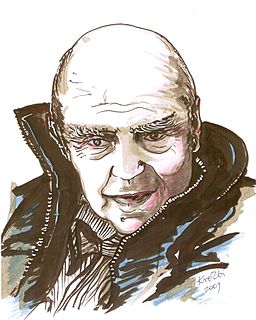 W
WJarosław Marek Rymkiewicz is a Polish poet, essayist, dramatist and literary critic.
 W
WJerzy Skolimowski is a Polish film director, screenwriter, dramatist and actor. A graduate of the prestigious National Film School in Łódź, Skolimowski has directed more than twenty films since his 1960 début Oko wykol. In 1967 he was awarded the Golden Bear prize for his film Le départ. His most famous film is Deep End (1970), starring Jane Asher and John Moulder Brown. He lived in Los Angeles for over 20 years where he painted in a figurative, expressionist mode and occasionally acted in films. He returned to Poland, and to film making as a writer and director, after a 17-year hiatus with Cztery noce z Anną in 2008. He received the Golden Lion Award for Lifetime Achievement at the 2016 Venice Film Festival.
 W
WJózef Szajna was a Polish set designer, director, play writer, theoretician of the theatre, painter and graphic artist.
 W
WAndrzej Trzebiński was a Polish poet, essayist, and playwright.
 W
WZygmunt Turkow was a Polish actor, director, playwright and director of Jewish origin from Warsaw, who became famous for roles in the pre-war Jewish films and stage plays in Yiddish. His brother, Jonas Turkow, was also a noted actor and stage manager.
 W
WBruno Winawer was a Jewish-descended Polish physicist, columnist, and author of comedies, science fiction novels, short stories, and poetry.
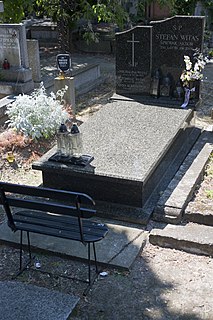 W
WStefan Witas - was a Polish actor and singer. In 1933, he began performing at places of entertainment in Warsaw, then in theatrical stages in many Polish cities. In 1937 he won the Polish Radio competition for the most popular singer. He worked in famous nightclubs like Adria, Gastronomia and Alhambra.
 W
WStanisław Ignacy Witkiewicz, commonly known as Witkacy, was a Polish writer, painter, philosopher, theorist, playwright, novelist, and photographer active before World War I and during the interwar period.
 W
WKazimierz Zalewski, pseudonym Jerzy Myriel, was a Polish dramatist, literary and theatre critic, one of the leading author of middle-class positivistic drama.
 W
WMaria Gabriela Stefania Korwin-Piotrowska (1857–1921), known as Gabriela Zapolska, was a Polish novelist, playwright, naturalist writer, feuilletonist, theatre critic and stage actress. Zapolska wrote 41 plays, 23 novels, 177 short stories, 252 works of journalism, one film script, and over 1,500 letters.
 W
WJerzy Zawieyski, born Henryk Nowicki, was a Polish playwright, prose writer, Catholic political activist and amateur stage actor. He wrote psychological, social, moral and historical novels, dramas, stories, essays and journals.
 W
WEmil Zegadłowicz was a Polish poet, prose writer, novelist, playwright, translator, expert of art; co-originator of Polish expressionism, member of expressionists' group Zdrój, co-founder of group Czartak.
 W
WStefan Żeromski was a Polish novelist and dramatist belonging to the Young Poland movement at the turn of the 20th century. He was called the "conscience of Polish literature".
 W
WJerzy Żuławski was a Polish literary figure, philosopher, translator, alpinist and nationalist whose best-known work is the science-fiction epic, Trylogia Księżycowa, written between 1901 and 1911.